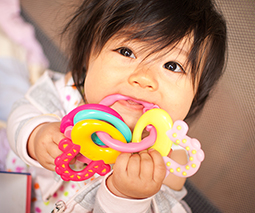A new study of over 2 million kids confirms the major cause of autism

Theories about the causes of autism spectrum disorder (ASD) abound, from falsehoods about links to immunisation to important finds about gut health and links to autism and interesting hypotheses about maternal infections and ASD.
It’s in the genes
A huge new long-term study has delved very deep into the factors that increase the chances of a child developing autism. The findings of this research gives parents more valuable information about when they should be on the look out for signs of ASD.
Looking at over 2 million children across five countries – Denmark, Finland, Sweden, Israel and Australia – the study’s findings were just published in JAMA Psychiatry.
The researchers found that around 80 percent of autism risk comes from inherited genetic factors – rather than factors that parents can modify by behavioural changes.
Of course it’s possible that the remaining 20 percent of risk factors could well be modifiable, but it’s important to note that much of autism risk is pre-programmed biologically.
“In a large population-based multinational cohort study including more than 2 million individuals, 22 156 of whom were diagnosed with ASD, the heritability of autism spectrum disorder was estimated to be approximately 80 percent,” the study authors explained in their just-published research.
“Genetic factors were most important”
Speaking to HuffPost, study author Sven Sandin said that this genetic risk was very, very clear.
“Everywhere we looked, in five different samples, what we saw was that genetic factors were most important.”
This is especially useful information for parents with some family history of ASD. Knowing that a whopping 80 percent of the risk factors associated with autism spectrum disorder are down to genes provides clear clues for those with a family history of autism. Their child may be more predisposed to ASD.

They can not only be on the lookout for early signs of autism, they can seek early intervention if their child does exhibit behaviours that might be on the spectrum.
This early intervention really does improve outcomes for children who are on the spectrum, with The Conversation recently reporting that babies as young as 12 months benefited from therapy.
The Conversation explained that Australian study found that children who were showing early signs of ASD had their communication skills strengthened by a “low intensity” therapeutic intervention of just one hour a fortnight.









